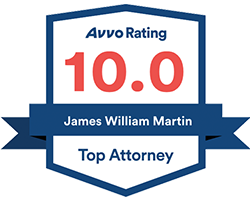Selling Real Estate in Probate
Selling real estate in probate can be difficult in Florida because when someone dies owning a home or other real estate in Florida the legal title to the house or other property passes as of the date of death. This can be a problem because we often don’t know on the date of death who are the new, rightful owners of the real estate. For example, if the person died with a will, then the will needs to be probated by a probate court to confirm the beneficiaries. And if the person died without a will, then probate is still required to determine the heirs. And probate takes time.
In the meantime, someone needs to lock, secure and maintain the real estate and someone needs to get insurance in the new owner’s name in case someone gets hurt on the property or the property is damaged by fire or storm. And someone might need to sell the real estate in order to distribute the proceeds to probate estate beneficiaries or to pay creditors.
And not just anyone can do this. It needs to be done by a person who has legal authority to do those things, usually by court appointment by the probate court. Even if the decedent gave someone a power of attorney during life to deal with the real estate, the person holding it would not be able to do those things because powers of attorney end at death.
Also, someone with legal authority will need access to the real estate to look for wills, trusts, deeds, and other records.
St. Petersburg probate attorney James W. Martin advises his clients on how to deal with these issues. He knows how to determine who has authority to sell real estate in probate of a Florida decedent and how to get court approval when required.
Let’s explore the issues faced when someone dies owning real estate in Florida.
Determining the Rightful Owners of Florida Real Estate After Death
These are some of the questions that must be answered to determine the rightful owners of Florida real estate after the owner’s death:
- Did the decedent sign a will, and if so, was there more than one will, and have all signed originals of each will been filed with the probate court, and has the probate court admitted one of the wills to probate, and has the time passed for anyone to contest the will, and who are the persons named as beneficiaries in the will, and where are those beneficiaries?
- Did the decedent sign a living trust, and if so, was the real estate titled in the trust name, and if so, who are the beneficiaries named in the trust, and has notice of the trust been filed with the probate court, and has anyone contested the trust or made a claim under it?
- Did the decedent live in the Florida real estate, and if so, was it the decedent’s homestead, and if so, do the Florida homestead laws affect the title to the home and require that it pass to someone other than the beneficiaries named in the will or living trust?
- Did the decedent get married or have a child after signing the will or living trust, and if so, do the Florida pretermitted spouse or pretermitted child laws apply to affect title to the real estate?
- Did the decedent die leaving a surviving spouse, and if so, has the surviving spouse elected to take an elective share, and if so, does that affect title to the real estate?
- Was the real estate owned by an entity, such as a corporation, LLC, or partnership, and if so, what was the decedent’s interest in that entity, and is there an original certificate or proof of ownership?
- Did the decedent have a title insurance policy on the real estate, and has it been updated after death to show the current state of the title?
- Did the decedent validly own the Florida real estate jointly as tenants by the entirety with a surviving spouse, in which case title would automatically pass at the decedent’s death to the surviving spouse and not pass through probate?
- Did the decedent validly own the Florida real estate as joint tenants with full rights of survivorship with someone who survived him, in which case title would automatically pass at the decedent’s death to the surviving joint owner and not pass through probate?
- Did the decedent own the Florida real estate jointly as tenants in common, in which case the decedent’s interest would likely be a probate asset unless it was homestead.
Once all of these questions are asked and answered, then the Florida probate attorney will be able to narrow down who are the possible rightful owners of Florida real estate after the owner has died. But, there are more questions to consider.
Determining Who Has the Right To Access and Possess Florida Real Estate After Death
These are some of the persons who might have the right to access or possess Florida real estate after the owner dies and before a determination of who are the new, rightful owners:
- The personal representative of the decedent’s estate appointed by a Florida probate court would have the right to access and possess the decedent’s Florida real estate for specific purposes under the Florida Probate Code.
- A person who owned the Florida real estate as a tenant in common with the decedent would have the right to access and possess it as an owner.
- A tenant of the decedent may have the right to access and exclusively possess Florida real estate after the decedent’s death if the tenant has a valid written lease or oral tenancy of the property.
- A buyer under a valid contract for sale and purchase of Florida real estate might have the right to access the property after the decedent’s death depending on the wording of the contract.
- A real estate broker under a valid listing agreement for sale of the Florida real property might also have the right to access the property after the decedent’s death.
- A spouse of the decedent might have the right to access and possess the Florida real estate after the decedent’s death, assuming it is homestead property, but if not then this might be difficult.
- A family member, friend, or significant other who was residing on the property might have the right to continue to reside on the property after the decedent’s death, but if there is no written lease agreement or other contract, then this might be difficult.
- If the decedent had a court-appointed guardian, then the guardian might have the right to access the real estate after death, but a power of attorney would probably be insufficient because they end at death.
Creditors of Florida Probate Estates
In Florida, creditors of a Florida probate estate are generally entitled to be paid before beneficiaries. In addition, some creditors might have liens on the decedent’s real estate:
- A mortgage lender could have a lien on the real estate.
- A construction contractor, subcontractor, or supplier could have a lien on the real estate.
- The federal, state, and local governments could have liens on the real estate for taxes and assessments.
The creditor claims process in the probate court proceeding must deal with these creditors, as well as other reasonably ascertainable creditors.
Some Basic Questions
In any probate case, there are five basic who, what, when, where, and why questions:
- Who died? Who survived? Who has the deed, will, trust, and other documents? Who are the heirs and beneficiaries? Who are the creditors?
- What real estate was left by the person who died? What other assets were left? What’s going on with the property now?
- When did the person die? When did the person acquire the real estate?
- Where is the real estate? Where are the survivors, heirs, beneficiaries, and other persons involved?
- Why are you involved and what do you hope to accomplish?
The Role of the Florida Real Estate Attorney in Probate
Probate is not always black and white. People are complicated; real estate is complicated; probate is complicated. That’s why a probate attorney is needed when someone dies owning real estate in Florida.
The attorney needs to determine which statutes, codes, and case law apply to the unique facts of each case. Then the attorney can come up with a set of possible outcomes. Once we know what the law has in store for this particular situation, we can come up with a plan to help the client accomplish what the client sets out to accomplish.
There are many fine attorneys in Florida. And when it comes to Florida real estate owned by someone who has died, a Florida attorney such as James W. Martin, with years of experience in both Florida real estate law and Florida probate law, can be very helpful.
Contact
If you have the need for a St. Petersburg Pinellas County Florida probate and trust attorney, you may use the contact form below or call James W. Martin directly at 727-821-0904 or email him at jim@jamesmartinpa.com for a free initial consultation.
The text on this page was written by James W. Martin, Esq. and was last updated on May 18, 2023.





